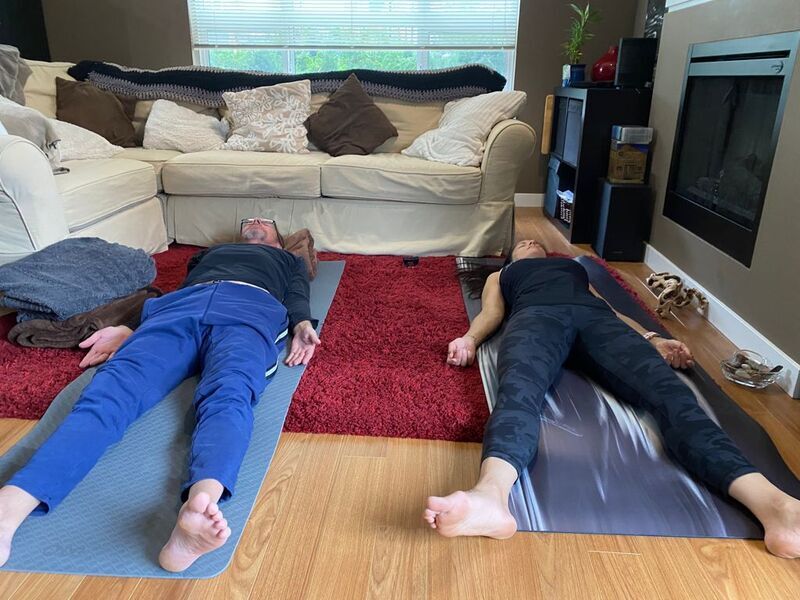The Mindful Path to Wellness

The Mind-Body Connection
Before delving into the benefits of mindfulness, it's essential to understand the mind-body connection. Our bodies and minds are intricately linked, and the state of one significantly influences the other. When we're stressed, anxious, or overwhelmed, our bodies respond with increased tension, elevated heart rate, and even digestive issues. On the flip side, a calm and focused mind can lead to improved physical performance, enhanced recovery, and better overall well-being.
The Benefits of Mindfulness
Stress Reduction: Fitness can be a potent stress reliever, but it can also become a source of stress if approached with the wrong mindset. Mindfulness helps reduce stress by teaching us to be present in the moment, letting go of worries about the past or future. When you're in a relaxed state, your workouts become more enjoyable and less taxing on your body.
Enhanced Performance: Mindfulness allows you to tap into a flow state, where you're completely absorbed in your workout. This heightened focus can lead to improved performance, better technique, and a deeper mind-muscle connection. Whether you're lifting weights, running, or practicing yoga, being fully present can make a world of difference.
Better Recovery: Fitness enthusiasts often overlook the importance of recovery. Mindfulness can aid in recovery by reducing inflammation, promoting relaxation, and improving sleep quality. When you're mindful of your body's signals, you're more likely to rest when needed, preventing overtraining and burnout.
Improved Body Image: Many fitness enthusiasts struggle with body image issues. Mindfulness encourages self-acceptance and self-compassion. By being present and non-judgmental during your workouts, you can learn to appreciate your body for its capabilities rather than constantly critiquing its appearance.
Healthy Eating Habits: Mindful eating is a significant component of overall fitness. It involves savoring your food, eating slowly, and paying attention to hunger and fullness cues. This approach can help prevent overeating and make more nutritious food choices.
Emotional Resilience: Fitness journeys often come with setbacks and plateaus. Mindfulness cultivates emotional resilience, enabling you to bounce back from disappointments and stay committed to your goals. You'll learn to view challenges as opportunities for growth rather than insurmountable obstacles.
Now that we've established the benefits of mindfulness, let's explore practical ways to incorporate it into your fitness routine:
Start with Meditation: Meditation is a foundational practice for mindfulness. Begin with short sessions, even just 5-10 minutes a day, and gradually increase the duration as you become more comfortable. Focus on your breath and gently bring your mind back whenever it wanders.
Mindful Workouts: Approach your workouts with intention and awareness. Concentrate on the sensations in your body, your form, and your breathing. If your mind starts to wander, gently redirect your attention to the task at hand.
Body Scanning: During or after your workouts, perform a body scan. Close your eyes and mentally scan your body from head to toe, noticing any areas of tension or discomfort. This practice helps you release physical tension and become more aware of your body's needs.
Mindful Eating: Pay close attention to your meals. Avoid distractions like TV or your phone, and savor each bite. Notice the flavors, textures, and how your body responds to the food. This practice can prevent mindless overeating and promote healthier choices.
Yoga and Tai Chi: Consider incorporating yoga or Tai Chi into your fitness routine. These practices blend physical movement with mindfulness, offering a holistic approach to both mental and physical well-being.
Journaling: Keep a fitness journal where you record your workouts, how you felt during them, and any insights or thoughts that arise. This can help you track your progress and identify patterns in your mindset.
Seek Guidance: If you're new to mindfulness, consider attending mindfulness workshops or working with a mindfulness coach. They can provide guidance and support on your journey.
In a world which often prioritizes external results over inner well-being, mindfulness offers a refreshing perspective for fitness enthusiasts. By cultivating a mindful approach to your fitness journey, you can not only achieve your physical goals, but also enjoy the process, reduce stress, and nurture a deeper connection between your mind and body. Remember, it's not just about the destination; it's about the mindful journey you embark on every day. So, take a deep breath, be present, and let mindfulness elevate your fitness experience to new heights.

